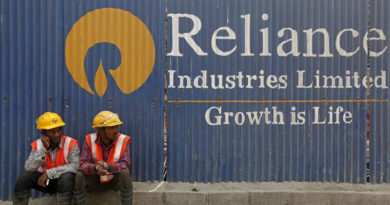Google faces international criticism as US prepares antitrust case
Google is facing a mounting criticism against its market power in international markets, worsening the company’s regulatory challenges as it hems in for a historic antitrust suit from the US Justice Department.
In the past few weeks, the search giant’s business practices have come under scrutiny in countries like Australia, South Korea and India. The European Union’s antitrust chief has already warned to split Google if it won’t change its methods, while the company banned in China a decade ago because of state censorship.
India is a big example of how Google’s policies could incise future growth. Around 200 tech startup founders have come together and started discussions with the government to stop the Alphabet Inc. system from imposing a 30% fee on digital goods’ purchases, its standard commission across the globe. While Google postponed implementation for six months after an uproar last week, the country’s tech industry is resolute to compel the colossus.
“As a country, can we afford to give away so much power to one or two monopolistic foreign companies?” said Anupam Mittal, a renowned angle investor and startup founder. “If country wants to build the next Microsoft or Apple, the government has to act now.”
Indian authorities have proven ready to go after the top corporations and take decisive action — when they see an obvious national interest. Firms such as Apple Inc. were not permitted for years from laying their own retail stores to benefit local businesses, while more than a hundred Chinese apps including TikTok and PUBG were quickly banned this year over security issues.
“We’ve lots of confidence in the government; they’ve acted decisively in the last few months,” said Mittal, who is part of a group talking with officials. “Google will have to back off.”
The Mountain View, California-based company adopted an inflicted tone as it delayed plans until 2022 to constrain local developers to bill through its Play Store and pay a 30% fee. That turned out an unexpectedly quick about-face for a tech company no stranger to resisting governments around the world.
“We are planning listening sessions with leading Indian startups to know their concerns more deeply,” Google wrote on its blog post.
Company representatives didn’t answered to requests for further comment.
The backlash in India raises global protest to the fee structure imposed by Apple and Google in their app stores. Fortnite-maker Epic Games Inc. filed a lawsuit in the U.S. against the two firms for how they inflict such charges.
Alphabet Inc. remains one of the tech industry’s lauded powers, with a market share of around $1 trillion. But, due to growing criticism of its practices across countries, its shares have underperformed this year, touching 13% compared with 29% for the Nasdaq index.
The company needs to leverage market opportunities like India if it wants to fulfill investor’s high expectations. The country stands second after China as the world’s largest internet market and a whopping growth market for smartphone users. Alphabet’s chief executive, Sundar Pichai as an India native, has attempted to build bridges by attracting local alliances and vowing to invest $10 billion in the country.
“The next 500 million users will connect from India,” said Tarun Pathak, associate director at Counterpoint Technology Market Research.
Like many other foreign technology companies, Google has struggled to pull out meaningful profits from this huge base of internet users. India’s per-capita income stands around $2,000, compared with about $10,000 in China and more than $60,000 in the U.S.
“A one-size-fits-all global policy cannot work in a market like India,” said Pathak. “Google should come up with something local.”
The tech giant has the advantage that about 98% of smartphones in India run on its Android operating system, typically because iPhones are too costly for most locals. That’s why most users inclined to use its Play Store.
But Indian startup founders oppose Google’s 30% fee which would be excessive and hurt local developers. According to local developers, the new rule also violates Indian rules against payment for digital transactions. They’re thinking to develop a local app store, ideally with government help to create a successful alternative to Google’s Play Store.
Founder of digital payments provider Paytm, the most valuable startup in the country, Vijay Shekhar Sharma, has been a vocal critic of the American giant. A week ago, his company rolled out an Android Mini App Store that will provide local developers free listing for their apps and offer payment options at a 0% fee. Later, Paytm’s store convened its first ever developer conference and Sharma said he was aiming a million apps on the store by next year.
“This isn’t a mature ecosystem yet,” said Anup Jain, managing partner of the venture capital firm Orios Venture Partners. “A 30% Google commission puts a lot of startup business models under threat.”
